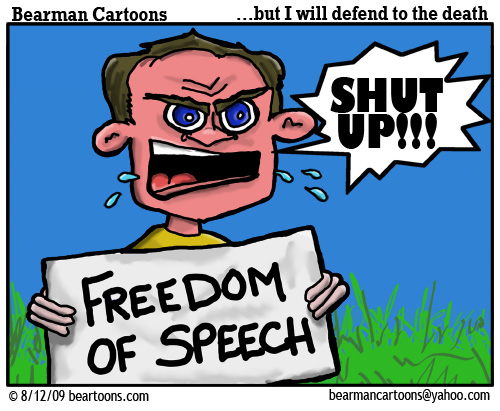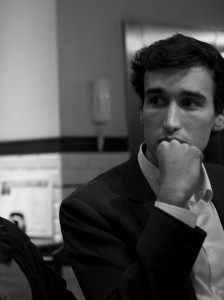For our Swedish friends Blå Ögon (Blue Eyes) is probably old news, but the TV drama has just reached the UK’s Channel Four as the latest serving of ‘Scandi noir’ for British viewers. Set in a slightly reimagined version of present-day Sweden, the series follows an election campaign closely fought between the ruling Labour Party and the opposition Security Party, a radical-Right-wing group that has risen to become the main voice of political dissent in the country. The parties are clearly ciphers for the real-life Social Democrats and Swedish Democrats, but the struggle between them is a story now all too familiar across Europe.
Towards the end of the first episode, Annika, a carer running for local government on the Security Party ticket, takes to a podium to address a crowd of supporters. Heckled by anti-racism protestors and protected by police, she demands to be heard, arguing that the sort of country she wants to live in does not shut down opposing viewpoints but instead defends freedom of speech. Her son, she says, has been subject to violent threats because of her political views. Slowly, the crowd breaks into applause – and, in the background, it seems that some of the protestors do too. As she is walking home later that night, Annika is stabbed to death in the street.
To another broadcast in the UK this week, this time on BBC radio: historian of modern Europe Timothy Garton Ash has presented a five-part programme on the importance of free speech. Ash wears his classical-liberal credentials on his sleeve, describing free speech as the ‘oxygen of freedom’ that allows all other liberties to breathe, and defending it as an absolute principle not only against those who threaten violence, but also against those who claim offence on behalf of a particular social group. He advances arguments against the growing practice of ‘no-platforming’ by student groups, and challenges the conflation of emotional offence with physical violence that informs the policy of ‘safe spaces’, including the infamous incidents of feminists Germaine Greer and Julie Bindel having their university appearances cancelled as the result of complaints about their views on transgender people.
Both of these programmes are intelligent explorations of one of the most important political questions of our era: at a time of deepening economic and political instability worldwide and of unprecedented interconnectedness via digital technologies, should people have the right to speak freely about whatever they wish? The question has moved on significantly from the traditional opposition between state censorship and a free press that was the cause célèbre of so many liberals in times gone by. Now, we see a horizontal network of oppositions, with individuals and groups seeking to censor one another or defend each other’s right to speak. The clash between secularists and religious fundamentalists is only the most obvious of many such instances, and here most of us would agree on which side we are on. There are also plenty of cases which should give the Left cause to doubt its monopoly on virtue, like the social-media lynch-mobbing of individuals who (actually or allegedly) have expressed views contrary to prevailing standards of progressive opinion.
Like all problems on such a vast scale, there are no easy answers. Personally I am something of a fundamentalist for free speech; I find its suppression both philosophically and practically indefensible, and here I part company with many Left-wing millennials. I defend the right of Marine Le Pen and Nigel Farage to present their views as vigorously as I would Ska Keller or Yanis Varoufakis. However, I know intelligent people who hold different views on the matter, and would see the free speech of certain groups curtailed to protect or promote that of others. So, in this forum of free discussion, I would like to open the floor to debate: what do people think?
You can download the article in PDF here.
James Bartholomeusz (1992) is from the United Kingdom and is a policy officer at the Project for Democratic Union.


